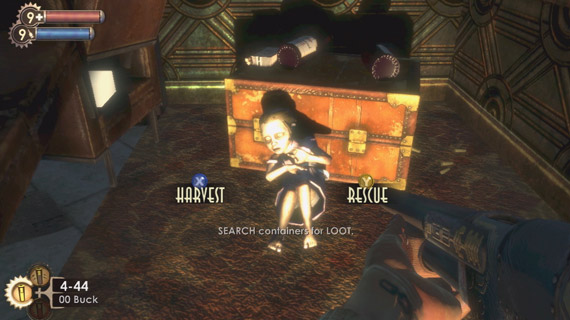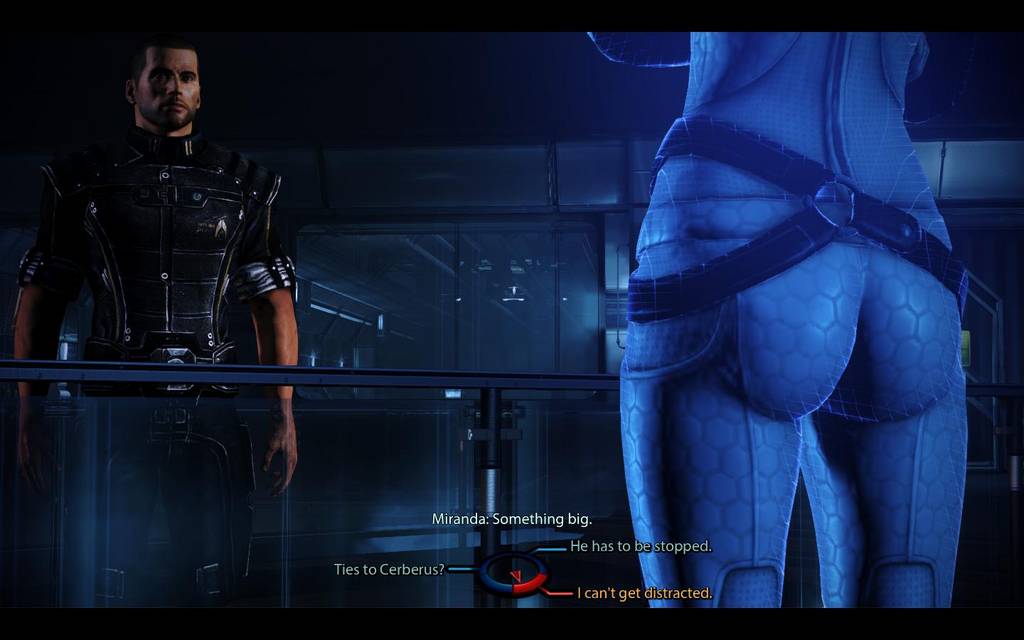Do the Right Thing

Moral choices have long been a part of gaming. They offer the chance for a player to leave their mark on a game, affecting the outcome and changing the course of a game. These binary, good vs. evil choices are so often structured in the same way. Evil choices are flashy and violent, giving you a small amount of short term gain in return for a karmic hit. Good choices then should be the opposite, giving up personal gain in exchange for doing the right thing. But this isn’t how they manifest. You are almost always rewarded for doing the “good” thing, and frequently the long term gains outweigh the gains from evil. The only real difference ends up being different achievements, or possibly some different dialogue at the end of the game.
Developers feel like they must incentivize the player to do the right thing. Cajole, push, and prod them in the direction of the moral high ground. And it isn’t hard to see why. Look at any open world game where there isn’t a morality system to keep players in line. Games like Grand Theft Auto or Far Cry, where players run rampant, leaving only destruction in their wake. With no outside influence, players trend towards chaos, naturally pushing the limits to see what they can do.
Look at Bioshock’s moral choice in whether to save or harvest the little sisters. At first glance, it is rather straightforward. If you harvest them, you get more ADAM, a valuable currency that lets you become more powerful more quickly. In return, you have to death with a horrific death animation and the negative opinions of NPCs. Saving them means you get less ADAM, but you get to feel good about saving these little girls.
It is a moral tradeoff. Doing the good thing is difficult and actively makes the game harder, whereas being selfish allows you to progress easier. But later in the game, you get rewards for saving the little sisters that make the choices roughly equal. What used to be a sacrifice on the players part simply becomes a question of how much of an asshole that you want to be.

Compare that to the Mass Effect paragon system. Good choices were virtuous and boring, but evil choices had you kicking people out of windows, punching reporters, and shooting people in the face. Yet even if you took the renegade option, it didn’t really change anything. There was never a reason to not activate the renegade trigger, because the only downside would be a disapproving line of dialogue that everyone quickly forgot about. Any lasting karmic repercussions were quickly wiped out by finding someone’s wallet or being nice in a conversation.
This isn’t even looking at the easily gameable karmic systems of games like Fallout, where mass murder can be wiped out by donations of water to transient settlers. In those games, not only is the choice made pointless, but you can frequently have both the good and evil rewards for a quest.
Evil choices are often way more fun to the player because they don’t restrict their actions, and to counter that, developers have decided to tie rewards to positive moral choices instead of just improving the writing to make the player compelled to make the choice. It is a failure in the current state of video game writing that we are not compelled by the story alone to do good.
To many, games are about fun, and we’ve been trained by games to know if we are playing “correctly” by dishing out rewards for progress in the right direction. If we are moving forward, we find weapons, items, and money. If we head in the long direction, we get nothing. So if we are presented with a situation in which one outcome nets a reward and one does not, we will instinctively think that one choice is “correct”.
This prevents developers from having players do good things because they are good, flying in the face of the lifelong lesson that you must sometimes sacrifice something for the greater good. What is even more strange is that this idea of sacrificing for the greater good is present in the overarching plots of so many games, but god forbid a character ask you to give up on a reward in exchange for simply doing the right thing. It is game theory, where we need payment for services rendered and it holds back our stories with this desire to make both sides equivalent.
Most games with moral choices that have both good and evil characters will have them end up at the same place no matter what, so there can’t be a substantive difference between the two. Your character might be the biggest asshole in the world, but if they accomplish the same goal as a saintly character, it diminishes the meaning of the choice. They are forgetting the real idea behind morality. Doing the right thing isn’t always easy, and sometimes you have to make difficult choices in order to help others. By sugarcoating good choices, the lesson is lost upon the player and the choices become pointless.
_____________________________________________

Tom has been writing about media since he was a senior in high school. He likes long walks on the beach, dark liquor, and when characters reload guns in action movies.
You Might Also Like:
ViolenceAnatomy of a Scene - Sicario
Anatomy of a Scene - Chef
_____________________________________________